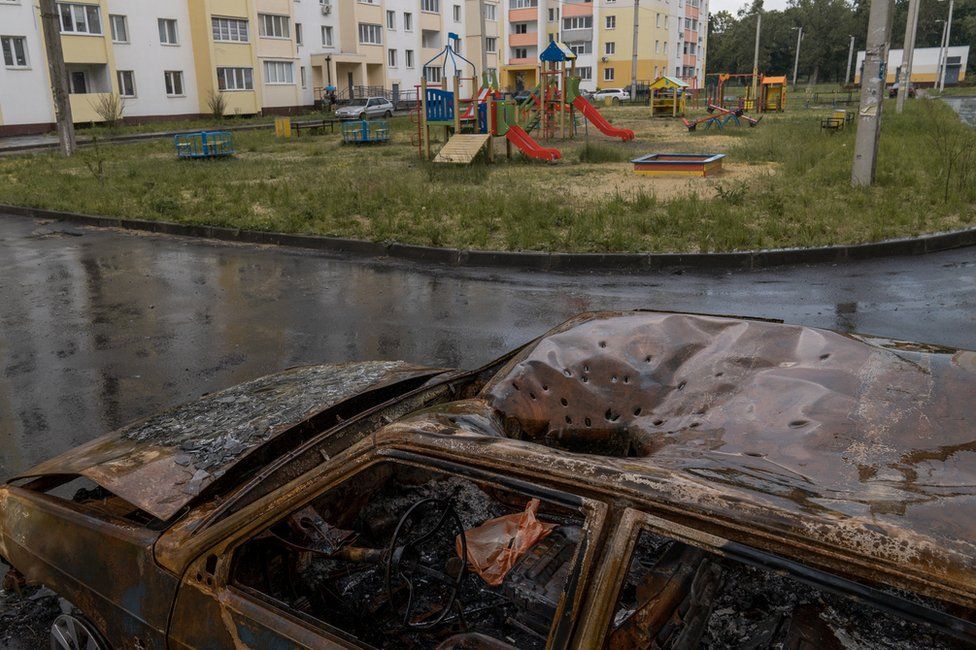 Russia has killed hundreds of civilians in the north-eastern Ukrainian city of Kharkiv using indiscriminate shelling and widely-banned cluster munitions, according to new research by Amnesty International.
Russia has killed hundreds of civilians in the north-eastern Ukrainian city of Kharkiv using indiscriminate shelling and widely-banned cluster munitions, according to new research by Amnesty International.
Amnesty said it had found evidence of Russian forces repeatedly using 9N210/9N235 cluster bombs, as well as “scatterable” munitions – rockets that eject smaller mines that explode later at timed intervals.
The BBC visited five separate impact sites in residential neighbourhoods in Kharkiv and saw evidence of a distinctive, symmetrical spalling effect associated with cluster munitions. We showed images from the sites to three weapons experts, who all said the impacts were consistent with the controversial weapons.
“Those impacts are from cluster munitions, it’s a classic signature,” said Mark Hizney, a senior researcher in the arms division of Human Rights Watch, a campaign group. “And in one image you can see a remnant of a stabiliser fin from one of the submunitions,” he said.
CCTV footage passed to the BBC by a resident at one of the sites showed successive clustered detonations – “a very strong indicator of submunitions from a cluster weapon,” said Hamish de Bretton Gordon, a former British Army colonel and Cambridge University weapons expert.
Cluster munitions are controversial because they detonate in the air and release a cluster of smaller bombs which fall indiscriminately over a wide area, potentially putting civilians at risk.
The smaller bombs also often fail to detonate on impact, posing a threat for years to come. More than 120 countries have signed a treaty prohibiting the use of the weapons – though neither Russia or Ukraine are signatories.
At the site of one apparent cluster munition strike in Kharkiv, around a housing estate and playground in the Industrialnyi neighbourhood, the spalling effect was visible around three separate impacts on three sides of a playground. (Courtesy BBC)


Post a Comment